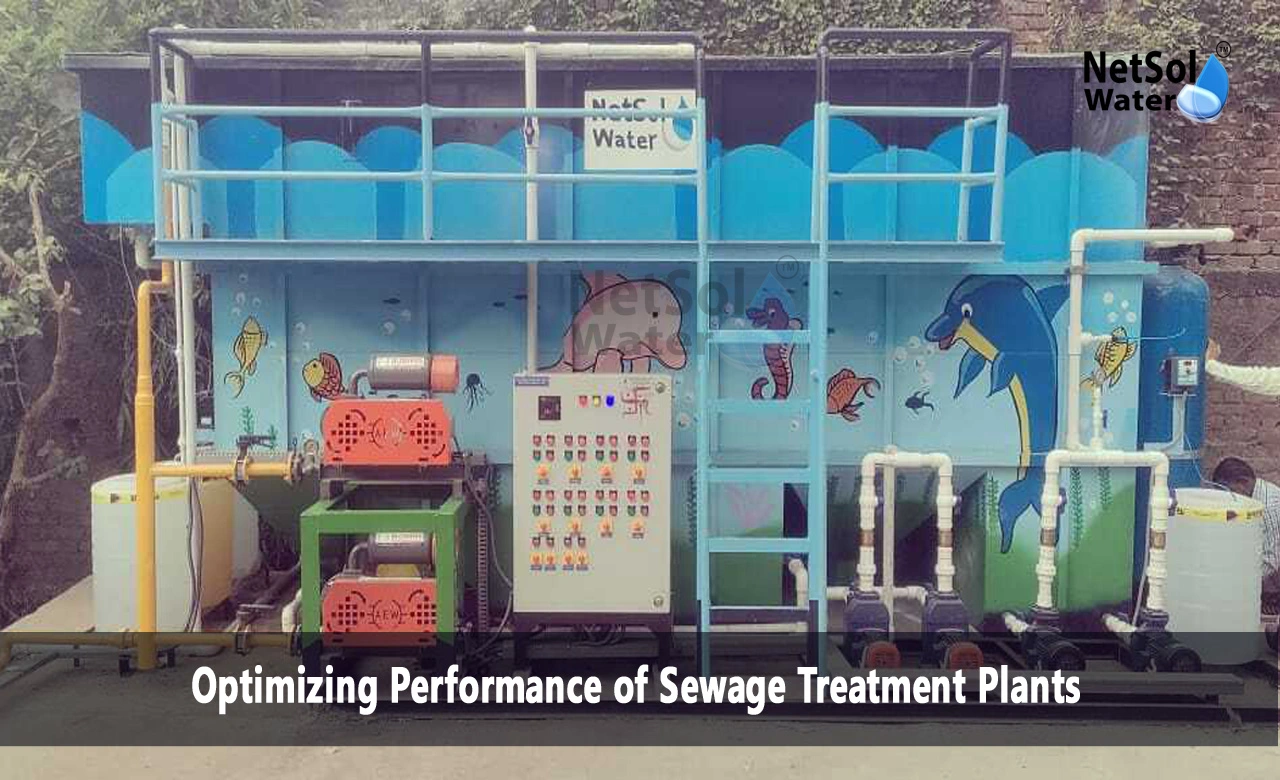How to Optimize Performance of STP Plants?
Sewage treatment plants are important for wastewater management, lessening pollution within the environment, and enabling water reuse. However, the effectiveness of an STP relies heavily on the performance with which it operates. Optimizing the performance of an STP ensures that it works to full capacity, efficiently meets its regulatory requirements, and manages the operational costs.
We will explains the strategies and technology related to the maximization of STP performance, including best practices in operations, system updates, and enhancement towards sustainability.
Important Factors Affecting Performance
1. Quality of Influent Quality and Character of Influent Wastewater
The quality and character of the influent wastewater directly impact the performance of the STP. It could be subject to inefficiencies due to organic loading, chemical composition, and varying flow.
Solution
· Conduct regular testing of influent water.
· Pre-treatment systems should be implemented to handle high pollutant loads.
2. Design and Capacity
An STP designed without consideration of future demands or wastewater characteristics may underperform.
Solution
· Proper planning for capacity at the design stage.
· Modularize to be expandable
3. Operational Practices
Lack of proper monitoring and maintenance will fail the equipment, makes the process not effective, and gets in violation of the regulations.
Solution:
· Train the personnel for effective operations.
· Timely schedule for the equipment and infrastructure's maintenance.
Techniques for Optimization of STP Performance
1. Enhanced Aeration Efficiency
Aeration is an essential aspect of biological treatment but at the same time highly energy expensive
Strategies:
· Utilize high efficiency blowers and fine-bubble diffusers.
· Use demand-based aeration systems that increase oxygen supply levels.
2. Advanced Biological Processes
Advanced biological treatment can eliminate pollutants with higher efficiency, occupying less space.
Examples:
· MBRs: Biological treatment along with membrane filtration.
· MBBRs: Immobilized fixed film treatment - low footprint
3. Automation and Online Monitoring
Automation technologies that include SCADA systems increase the monitoring, control, and efficiency of the process.
Benefits:
· Immediate identification of inefficiency or breakdown
· Data-driven decision for resourceful efficiency
· Minimized human error
4. Energy Optimization
Energy consumption is one of the largest operational costs for STPs.
· Energy-Saving Measures:
· Install energy-efficient motors and pumps.
· Recover biogas from anaerobic digestion to power operations.
· Integrate renewable energy sources like solar panels.
Reducing Sludge Generation
Sludge management is a significant challenge for STPs. Reducing sludge volume and optimizing its handling can improve plant performance.
Techniques:
· Thermal Hydrolysis: Pre-treats sludge for enhanced digestion and reduced volume.
· Centrifugal Dewatering: Improves sludge dryness, reducing transportation and disposal costs.
· Resource Recovery: Turn sludge into biogas, biochar, or fertilizers.
Effluent Quality Improvement
Achieving effluent discharge compliance is one way of meeting environmental requirements. Efficient processes lead to consistency in the quality of the effluent.
Methods:
· Enhanced Filtration: Use sand filters, activated carbon filters, or ultrafiltration membranes.
· Disinfection Technologies: Employ UV disinfection or chlorination to remove pathogens.
· Nutrient Removal: Follow the pathways of denitrification and phosphorus precipitation.
Conservation Practices in STPs
1. Water Reuse and Recycling
Treated wastewater can be reused for agriculture, landscaping, and industry, saving fresh water.
Steps to Facilitate Reuse:
· Intergrade additional stages of advanced filtration and disinfection.
· Partner with local industries and municipalities for reuse projects.
2. Carbon Neutral Operations
Recovery of energy and integration of renewable energy will make STPs carbon neutral.
Examples: Biogas Electricity Generation.
3. Resource Recovery
Value resources such as phosphorus, nitrogen, and bio-solids from treated wastewater can be recovered.
Common Problems Encountered in Optimization
· High Operating Costs: Modern plants require a higher cost of maintenance.
· Technical Expertise: Eligible staff are required to handle and operate the sophisticated plant.
· Aging Infrastructure: Upgrading aged plants involves high amounts of investment.
Case Studies: STP Optimization Success Stories
1. Energy-Neutral STP
Biogas Recovery and Integration with Solar Energy for a municipal STP in Europe
Net energy consumption zero
Outcome:
· Operational costs reduced by 40%.
· GHG emissions have reduced significantly.
2. Better Effluent Quality
An industrial STP that included even highly advanced filtration and UV disinfection ensured strict fulfillment of criteria for discharge.
Outcome:
· The overall pathogen removal reached 99%.
· Water reuse in industrial processes was made possible.
Future Trends in the Optimization of STPs
· AI-Based Decisions: AI algorithms will predict inefficiencies and give recommendations in real time.
· Hybrid Systems: Biological, chemical, and physical processes combined for efficiency.
· Circular Economy Models: Integrate STPs into broader systems for recovery and reuse of resources.
Conclusion
Optimizing Sewage Treatment Plants is a critical performance measure for efficient management of wastewater, ensuring compliance with regulatory requirements, and conserving the environment. Higher efficiency with lower costs can be ensured in STPs with advanced technologies, better operational practices, and integration of sustainability initiatives. The continuously growing need for clean water will be best met by optimizing strategies to protect both people and the planet.
Do you need an advice or assistance on selecting the best water and waste water treatment unit? We have solutions for all your problems!
Let us know your problem, our experts will make sure that it goes away.
For an assistance or related query,
Call on +91-965-060-8473 Or write us at enquiry@netsolwater.com



